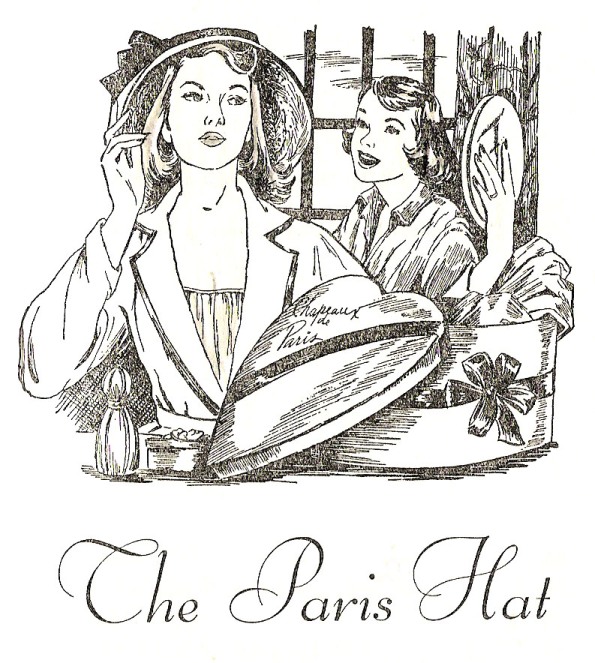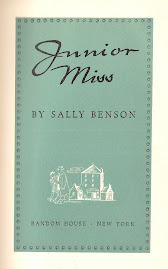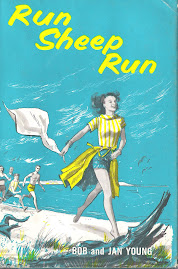 Title: A Girl Like Me
Title: A Girl Like MeAuthor: Jeannette Eyerly
Publisher: Lippincott, 1966
Jacket: Ellen Raskin (yes, that Ellen Raskin)
Provenance: Formerly the property of the Burnsville branch of the Dakota County (MN) Library System
Fun: Less than Zero, circa 1966
Setting: An unidentified town on/near the Mississippi River
Quote: If it was a baby, what would Cass do? She'd said her father would kill her. Of course, he would not. But Robin shivered, remembering the one time she'd seen him.
In magazine stories of the "True Confessions" type, up until the 1950s, giving a baby up for adoption was almost always portrayed as morally suspect -- an attempt to disown one's responsibility and erase one's past. In the 1950s, for various economic, social and psychological reasons*, the wind swung around suddenly. Adoption was now presented as the best solution for all parties -- the baby could go to a good home and the unwed mother could start a new and better life, her secret forever protected.
This second attitude forms the core of A Girl Like Me, which is partly set in a home for unwed mothers. Eyerly wants to write about her subject in a clean, unemotional and unsensational way, and she creates two typical characters -- Robin, a studious good girl, and Cass, a more popular type. Cass fixes up Robin with Randy, best friend of her boyfriend, Brew, and they make the rounds of decadent suburbia -- necking spots, beer joints and parties with loud "thumpy" music and no parents. Robin's own parents eventually intercede, forbidding her to see Randy, but it's too late for Cass, who turns up sick in the ladies' room in the middle section of the book.
From this point much of the book is standard -- a humilating visit to the doctor, Cass' banishment to a maternity home, rumors at school -- but Eyerly continues her crisp style at least until the last section, when Robin, who knows that she's adopted, attempts to find out something about her own parents.
A Girl Like Me is clearly a well-meant attempt to treat an important topic in a realistic, non-sleazy way, explore a complex issue facing teens today, etc, etc. The problem is that it probably wasn't possible, in 1966, for a reputable writer like Eyerly to plunge fully into the sticky business of adolescent desire. Unlike the books that Judy Blume would be writing 10 years in the future, Cass and Robin don't seem to have bodies or feelings. Randy and Brew are basically bullies and the reader has to wonder why the girls go out with them at all. And yet in some ways the book still holds up. It has the ring of the modern world: a character drives a Volkswagen, ESP is mentioned, and even the P word -- period -- is flung out casually. Robin, who defies both Cass' parents and her own to visit her in the maternity home, is an appealing character. Maternity homes are gone, and with them the unquestioning acceptance of adoption as the best thing an unwed mother can do, but I can see girls today still identifying with Robin and Cass.
Publisher: Lippincott, 1966
Jacket: Ellen Raskin (yes, that Ellen Raskin)
Provenance: Formerly the property of the Burnsville branch of the Dakota County (MN) Library System
Fun: Less than Zero, circa 1966
Setting: An unidentified town on/near the Mississippi River
Quote: If it was a baby, what would Cass do? She'd said her father would kill her. Of course, he would not. But Robin shivered, remembering the one time she'd seen him.
In magazine stories of the "True Confessions" type, up until the 1950s, giving a baby up for adoption was almost always portrayed as morally suspect -- an attempt to disown one's responsibility and erase one's past. In the 1950s, for various economic, social and psychological reasons*, the wind swung around suddenly. Adoption was now presented as the best solution for all parties -- the baby could go to a good home and the unwed mother could start a new and better life, her secret forever protected.
This second attitude forms the core of A Girl Like Me, which is partly set in a home for unwed mothers. Eyerly wants to write about her subject in a clean, unemotional and unsensational way, and she creates two typical characters -- Robin, a studious good girl, and Cass, a more popular type. Cass fixes up Robin with Randy, best friend of her boyfriend, Brew, and they make the rounds of decadent suburbia -- necking spots, beer joints and parties with loud "thumpy" music and no parents. Robin's own parents eventually intercede, forbidding her to see Randy, but it's too late for Cass, who turns up sick in the ladies' room in the middle section of the book.
From this point much of the book is standard -- a humilating visit to the doctor, Cass' banishment to a maternity home, rumors at school -- but Eyerly continues her crisp style at least until the last section, when Robin, who knows that she's adopted, attempts to find out something about her own parents.
A Girl Like Me is clearly a well-meant attempt to treat an important topic in a realistic, non-sleazy way, explore a complex issue facing teens today, etc, etc. The problem is that it probably wasn't possible, in 1966, for a reputable writer like Eyerly to plunge fully into the sticky business of adolescent desire. Unlike the books that Judy Blume would be writing 10 years in the future, Cass and Robin don't seem to have bodies or feelings. Randy and Brew are basically bullies and the reader has to wonder why the girls go out with them at all. And yet in some ways the book still holds up. It has the ring of the modern world: a character drives a Volkswagen, ESP is mentioned, and even the P word -- period -- is flung out casually. Robin, who defies both Cass' parents and her own to visit her in the maternity home, is an appealing character. Maternity homes are gone, and with them the unquestioning acceptance of adoption as the best thing an unwed mother can do, but I can see girls today still identifying with Robin and Cass.
*Detailed in Rickie Solinger's book Wake Up Little Susie: Single Pregnancy and Race before Roe v. Wade











No comments:
Post a Comment